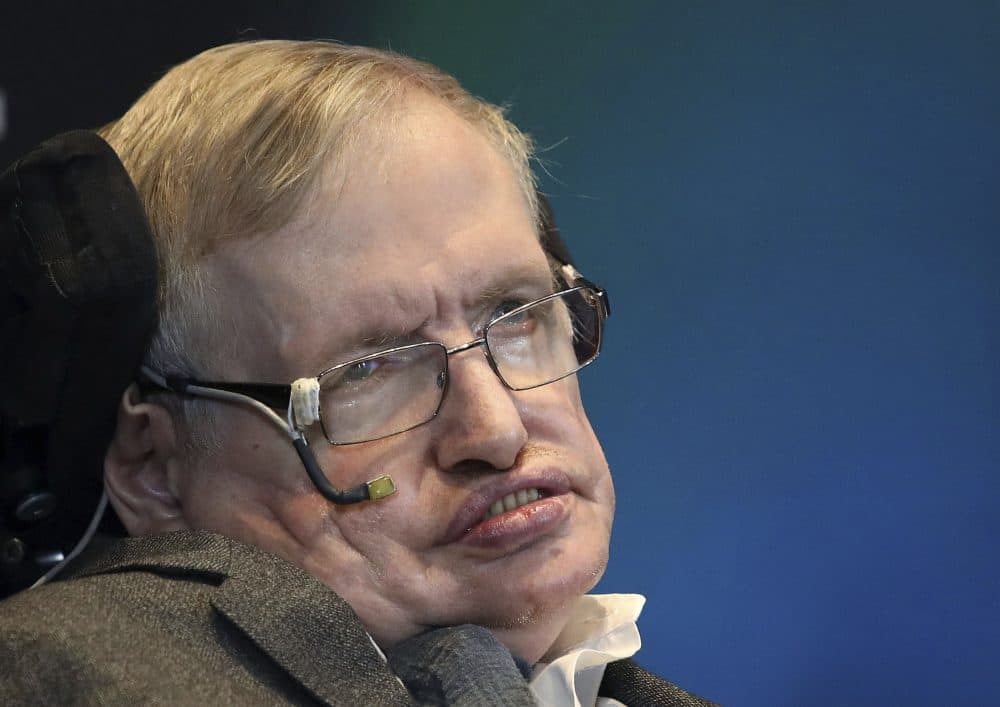Advertisement
Stephen Hawking's Death 'A Loss For All Of Us,' Friend And Fellow Physicist Says
Resume
Theoretical physicist Stephen Hawking, one of the world's best-known scientists, has died at the age of 76. His book "A Brief History of Time" captured the public imagination, selling millions of copies.
Here & Now's Robin Young talks about Hawking's life and impact with Laura Mersini-Houghton, a cosmologist, theoretical physicist and professor at the University of North Carolina Chapel Hill, who was a friend of Hawking's.
Interview Highlights
On which of Hawking's accomplishments she would put at the top of the list
"At the top of the list, of course, would be Hawking radiation — the fact that black holes are not black. And that is probably because [of] discovery, although there is a long list of contributions that he made to science. But on top of that, he also did great service to society by bringing science into the public eye, and at the same time, he took a very keen interest in politics and society. For example, this year, the last battle he fought — and that he won — was trying to protect the National Health Service in the U.K. So I might have to disagree with you on the mortality part. He did start his career in science as a mere mortal, but I think we all agree that that career never ended and he was greeted by immortality at the end."
"He was capable of putting a whole difficult concept in just one sentence, and with such clarity that it would take at least one paragraph to anyone else."
Laura Mersini-Houghton
On what it was like to have a conversation with Hawking
"That was the most special part of getting to know someone, especially Stephen, because he was capable of putting a whole difficult concept in just one sentence, and with such clarity that it would take at least one paragraph to anyone else. So once, of course, you get past the initial intimidation of being in the presence of such a great scientist, then from then on, it was not difficult communicating with him."
On Hawking's incorrigible side
"Stephen, of course, continued throughout his life to work on the problem of black holes and Hawking radiation. Even two years ago, we organized the conference together on this topic in Stockholm, and of course his doctor was very much against him traveling. But Stephen was pretty determined, and once he had set his mind into something, nobody could stop him. So this kind of strongheadedness made him a very, very special person."
On whether Hawking ever explained what living with ALS was like
"The closest I ever got to a more insider's understanding of this problem was when, in this conference in Stockholm that we organized together, we were deciding what music to have at the banquet of the conference, and I suggested Beethoven's Op. 131, which is that part of Beethoven's contribution when he was completely deaf and blind. And Stephen smiled and he said, 'No, we must have Op. 132,' and that was very telling, because there is a very subtle difference between 131 and 132, and that lies in the combination of hopelessness of being victim to a certain disease in one hand, and that willpower that sees you victorious at the end independently."
This segment aired on March 14, 2018.